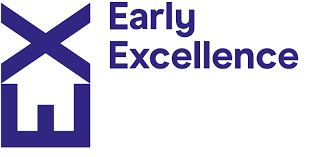Early Excellence’s Llewella Ivins shares her advice on how early years settings can support young children’s spoken language skills…
We often talk about strong foundations in early years education – and one of the most powerful foundations we can build is spoken language. For young children, talk is more than communication; it’s how they make sense of the world, form relationships, express emotions, and begin to learn.
While the classroom is rich with opportunities for conversation and language development, the home environment plays an equally vital role. Children who regularly engage in back-and-forth talk with adults at home are better equipped socially, emotionally, and academically – and this link is now recognised at a national level.
In January 2025, the UK government pledged £126 million as part of its Plan for Change, with a clear focus on ensuring every child gets “the best start in life”. One area of emphasis? Early language development – especially within the home learning environment.
Communication and Language is a Prime Area of Learning in the EYFS, underpinning everything else. Research shows that:
● Strong early communication and language skills are the biggest predictor of later educational outcomes – more so than reading or maths.
● Language-rich home environments support self-regulation, emotional expression, and social development.
● Without secure spoken language, children may struggle to access the wider curriculum and Specific Areas of Learning, and they may struggle to form relationships with peers.
For a variety of reasons, some families may need extra support with helping their children to develop language and communication skills. This may be through a lack of experience, confidence, or anxieties relating to their own language skills.
However, we know that’s where schools and settings can play a crucial role – not just in teaching communication and language, but in enabling it beyond the classroom and working in partnership with families.
At Early Excellence, we’ve long championed the importance of spoken language across continuous provision. In response to growing demand for meaningful home–school connections and parental partnerships, we’ve developed a simple but powerful tool: Going Home Discovery Bags.
These curated bags are designed for 0–5-year-old children to take home, offering:
● Carefully chosen books and resources that support oral storytelling and vocabulary development
● Prompts for conversation and turn-taking between children and adults
● Role play elements to encourage imaginative and expressive language
● Support for children with EAL, helping embed vocabulary through repetition and play
● Opportunities to strengthen relationships and support PSED at home
What makes these bags effective is that they’re not activity-based homework – they’re invitations to talk, explore, and connect. They make it easy for families to be part of their child’s learning journey, even in the smallest everyday moments.
Since early brain and language development lays the foundation for lifelong learning, parents and carers play a crucial role in giving their children the best start. Engaging in communication and language activities at home is one of the simplest yet most powerful ways in which parents can ensure a child’s future educational and social success.
Here are some simple steps that you can encourage families to take to help children’s language development at home.
● Share in stories daily – Even just 10–15 minutes a day can expand vocabulary and comprehension.
● Talk and ask questions – Encourage conversations, describe surroundings and ask open-ended questions.
● Sing and play with words – Songs, rhymes, and word games make language learning enjoyable for all.
● Encourage storytelling – Let children create their own stories or describe their day to enhance narrative skills.
● Limit screen time – More face-to-face interactions build stronger language skills than passive screen exposure.
By offering children resources that spark curiosity and conversation at home, we reinforce what children are learning in the early years. More importantly, we empower families to play an active role in their child’s development – building confidence for both the adult and the child.
Whether it’s a bedtime story, making up a silly song, or talking about what they see on the way to school, these moments matter.
To read more about the importance of talking with early years children in the home and to understand why spoken language is so fundamental, read The Best Start in Life: Encouraging Talk in the Home Environment.
For help with supporting spoken language in the home, explore the new Going Home Bags for Early Years children.
Llewella Ivins is a curriculum consultant for Early Excellence. She is an experienced teacher and school leader specialising in early years and KS1.

